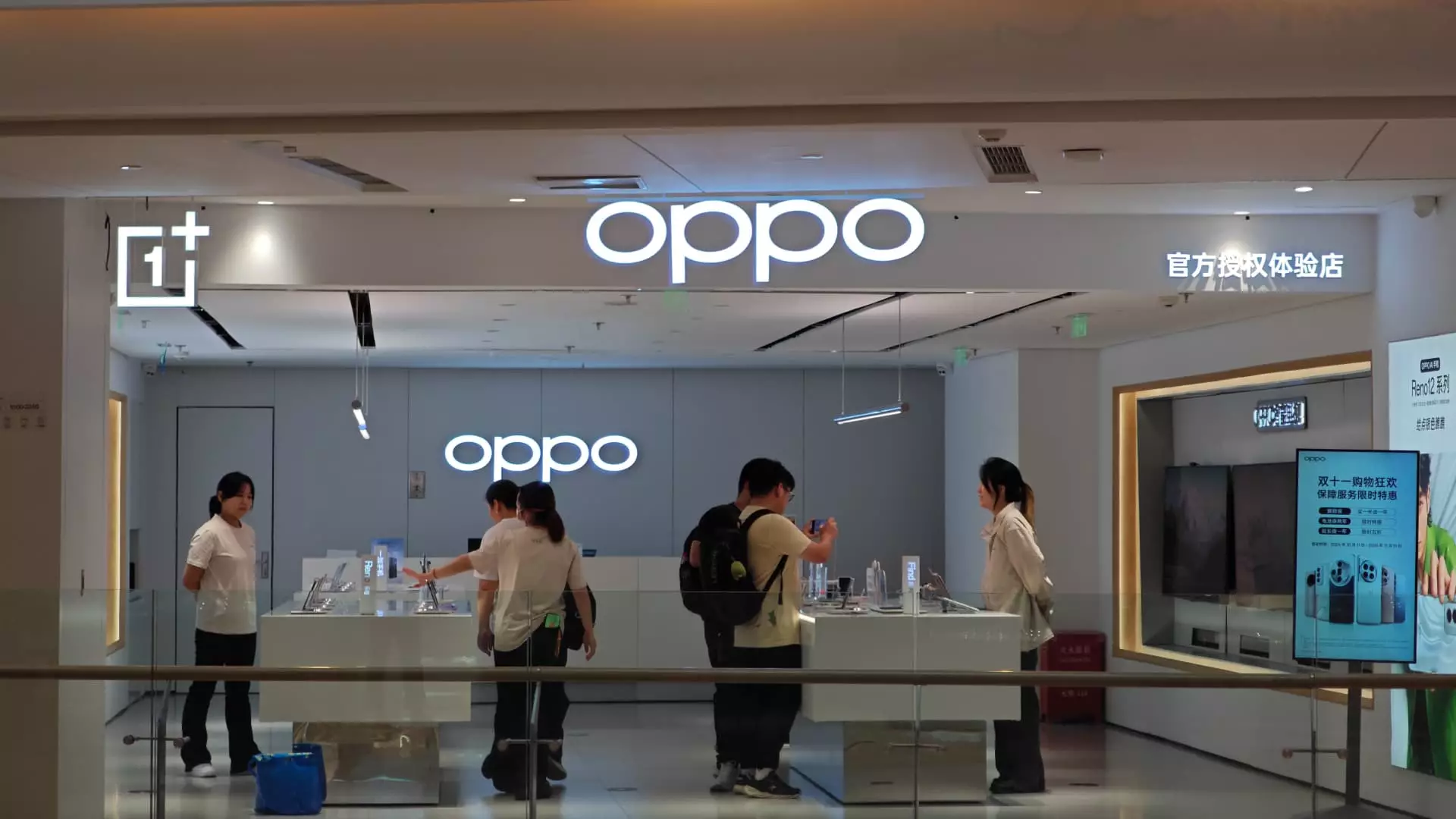Oppo, a prominent player in the smartphone market, is leveraging the rapid advancements in artificial intelligence (AI) to redefine its offerings. As generative AI continues to gain traction, with its ability to produce human-like interactions, Oppo is engaging in strategic discussions with tech giants like Google and Microsoft. These weekly collaborations are aimed at identifying and addressing consumer needs, a move that reflects a broader industry trend where companies from Apple to Honeywell are racing to harness the benefits of AI technologies.
Billy Zhang, president of Oppo’s overseas market sales and services, articulated the company’s commitment to understanding consumer requirements. By working closely with leading tech companies, Oppo intends to leverage AI to enhance user experience and satisfaction. “We know consumers’ needs, and we will use AI to satisfy them,” Zhang emphasized during a recent interview in Shenzhen, illustrating how customer-centric innovation is driving Oppo’s strategic direction.
Oppo’s Global Aspirations and Market Position
Oppo is strategically expanding its footprint in Europe while maintaining a significant presence in Southeast Asia, where it derives about 60% of its revenue. Interestingly, despite its successes internationally, Oppo is currently not planning entry into the U.S. market. In terms of production, the company holds a notable position as the fourth largest smartphone manufacturer globally, capturing 9% of total shipments according to Canalys statistics.
The competitive landscape sees Samsung and Apple dominating the market, while Xiaomi continues to vie closely with these industry leaders. Despite the advanced AI capabilities entrenched in U.S. companies, experts observe that Chinese manufacturers may hold an advantage in the consumer tech domain. This advantage becomes even more pronounced amidst ongoing U.S. sanctions restricting the export of high-end chips to China.
Oppo is preparing to integrate advanced AI functionalities into its upcoming flagship smartphone, featuring tools powered by Google’s Gemini and content generation capabilities from Microsoft. However, there remains ambiguity surrounding the extent to which existing Oppo devices utilize AI technologies from these partners. Notably, Oppo has set a target to embed generative AI into 50 million devices by the end of this year.
In terms of innovation, Oppo’s current AI functionalities include features like photo enhancement and a chatbot reminiscent of ChatGPT. Moreover, the company has been proactive in establishing its own AI models since 2020, complemented by the opening of an AI center earlier this year, reinforcing its dedication to AI-driven solutions.
Industry Forecasts and Competitive Innovations
According to predictions by Counterpoint Research, shipments of smartphones imbued with generative AI will surge dramatically, expected to rise from a mere 46 million units last year to a staggering 732 million by 2028. This growth trajectory underscores the significance of AI features, although the specific complexities of these functionalities remain undefined.
Competitors are also advancing their AI capabilities. For example, Apple is on the brink of launching its first software update incorporating AI tools, which includes features for photo element removal and ChatGPT integration. Similarly, Honor recently unveiled a next-generation operating system capable of mimicking touchscreen actions via AI.
Beyond consumer applications, Oppo is increasingly focusing on AI integration in its manufacturing processes. In its Dongguan production facility, the company has begun replacing approximately 8% of its labor force with automation technologies. This transition not only enhances production quality and stability but also lowers costs and improves overall efficiency.
Danny Du, director of manufacturing management at Oppo, reflects on the transformative effects of digitalization within their factories, noting a remarkable 40% reduction in manufacturing costs over three years. The technological enhancements have also shrunk production time from 16 days to just 6 days, thus allowing Oppo to be more responsive to market demands, ultimately reducing the risk associated with unsold inventory due to reliance on long-term forecasts.
Oppo’s strategic focus on integrating AI across its product line and manufacturing processes positions the company at the forefront of the tech industry. The amalgamation of consumer insights and cutting-edge technology exemplifies how Oppo is not only adapting to market trends but is also poised to lead the charge in the evolving landscape of smart devices. As AI continues to transform industries, Oppo’s commitment signals a promising future, both for the company and the broader technological ecosystem.

